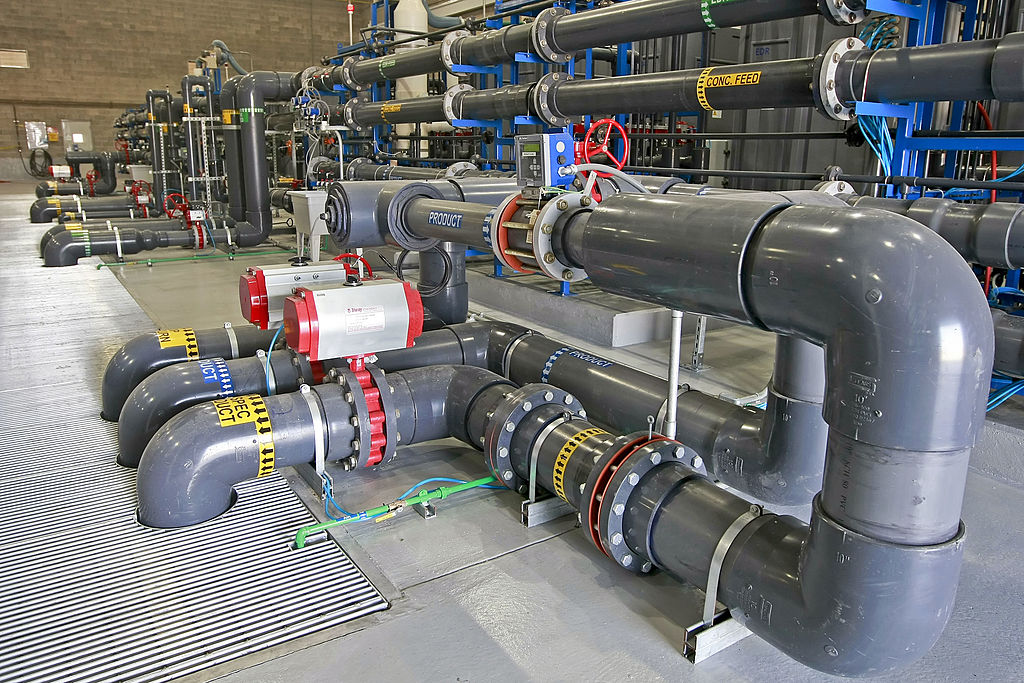Rick Santorum: It's Time to Invest in Real Infrastructure
After more than a year in COVID lockdown, our economy is poised to take off. But one thing that could keep us grounded is not making the investments we need in infrastructure, such as upgrading our failing airports and repairing old bridges and crumbling pavement.
The good news is a broad bipartisan consensus exists in Congress to make significant investments in infrastructure. The problem is not money. The problem is regulation and focus (calling something infrastructure doesn’t make it infrastructure).
Right now, the federal government is impeding infrastructure with overregulation. We need it to get rid of the regulations that are preventing us from making the infrastructure upgrades we need and delivering the clean energy we want. Our federal regulatory processes take too long, cost too much, and add unnecessary political risk to projects.
Consider NEPA, the National Environmental Policy Act. It was implemented in the 1970s so environmental concerns would be taken into consideration when projects were built. But “over the years compliance with NEPA has morphed into an expensive, time-consuming process and has become the weapon of choice for opponents seeking to slow down or stop major projects that need federal permits or approvals,” writes David Hill, a scholar at Columbia University’s Center on Global Energy Policy. Even projects that would provide clean energy have been shelved by it.
The Trump administration delivered real reform to NEPA, leaving the protections in place but simplifying the process so beneficial projects can move forward. The Vibrant Environment blog notes that the reform “sets firm time limits (two years for Environmental Impact Statements; one year for Environmental Assessments) and page limits (150 for EIS, 300 if unusually complex; 75 for EA)” for regulations. Prof. Hill concludes that the 2020 changes “could prove very useful — indeed essential — to developing renewable energy projects and upgrading other kinds of infrastructure, as well as creating jobs the country needs.”
Policymakers should also take up other plans to reduce red tape. For instance, the One Federal Decision Act aims to “reduce project delays and save taxpayer dollars without reducing the effectiveness of the environmental review process.” Another bill, The BUILDER Act, “modernizes the outdated National Environmental Policy Act (NEPA) to make infrastructure project reviews more efficient, reduce project costs, spur economic recovery, and rebuild America.” Either are worth considering.
However, we will need to move quickly. “Transmission is one of the longest lead time components of the clean economy,” FERC Commissioner Allison Clements told Politico. And while President Biden has promised to put hundreds of thousands of people to work building power lines, to do that he’ll have to push back against activists in his own Democratic party.
For example, environmental activists have “spent years opposing a nearly billion-dollar transmission line that would carry hydropower from Quebec to Massachusetts via Maine, expressing concerns about its environmental and scenic impact,” Politico adds. Zero-emission hydropower can help reduce CO2, and NEPA reform should help prevent such delays.
I’m proud to be a member of the Bipartisan Policy Center’s “Smarter, Cleaner, Faster Infrastructure Task Force.” We recently called on lawmakers to “launch a massive investment program in transportation, energy, water and communications technologies.” The country has a unique opportunity to spend money effectively.
The on-going vaccination process can be a model. Operation Warp Speed was a public private partnership. The Trump administration focused on getting government out of the way of the private sector, reducing barriers to the commercialization of solutions. It also entered contracts with several different providers as a buyer of last resort, agreeing to purchase hundreds of millions of doses if the drug makers could produce them.
As with vaccine support, there are some projects that are so large in scope they can only be undertaken by the federal government. Interstate highways are, by definition, a project that extends across state lines and thus require federal funding.
First, though, we must stop using COVID as an excuse to expand the federal government. If the left thinks clean energy infrastructure is important, it should focus on building that infrastructure, and stop throwing money at COVID relief. The business newspaper Barron’s recently noted that more than a third of all personal income in the past year came in the form of direct payments from the federal treasury. That can’t continue. Instead, we should be shoring up our free market infrastructure.
All the big, successful programs, in American history — think infrastructure programs such as the Interstate Highway System — enjoyed broad bipartisan support. Infrastructure still does. But voters will flip and oppose the projects if politicians try to pretend big government expansion plans such as increasing food stamps and unemployment benefits are “infrastructure” projects. They aren’t. Funding them as infrastructure would take our eye of the real goal.
Our country can come out of the pandemic stronger and cleaner than ever, if our leaders will focus on infrastructure, invest in green technology and reduce government waste to pay for it.
The Honorable Rick Santorum is a former United States Senator from Pennsylvania and an advisor to the Conservative Coalition for Climate Solutions
" Conservative News Daily does not always share or support the views and opinions expressed here; they are just those of the writer."





